
5 Common Payroll Mistakes to Avoid with Outsourcing
Outsourcing payroll has become an increasingly popular choice for businesses worldwide. It offers a streamlined process, access to expertise, and can significantly reduce overhead costs. However, as with any business transition, there are potential pitfalls to be wary of. While outsourcing can certainly alleviate many challenges, it’s vital to ensure that you avoid common mistakes to get the most out of the process. Let’s delve into five of the most frequent payroll errors businesses encounter when outsourcing and how you can sidestep them.
1. Not Clearly Defining Responsibilities
The Mistake: Often, businesses assume that by outsourcing, they’re handing off all payroll responsibilities. However, not all outsourcing companies offer the same set of services. This can lead to a misalignment of expectations, with tasks falling through the cracks.
The Solution: Communication is key. Before signing a contract, clearly define and document the responsibilities of both parties. Understand what the outsourcing company will handle and what remains within your purview. This might include tasks such as reporting new hires or sharing updated employee data in a timely manner.
2. Overlooking Data Security and Compliance
The Mistake: In the digital age, data security is paramount. Some businesses make the error of not vetting the security measures of their chosen payroll outsourcing company. Additionally, compliance with local and international payroll regulations is crucial.
The Solution: Ensure that the payroll service provider has robust data protection protocols in place. This includes secure data transmission, encrypted storage, and regular audits. Also, they should be well-versed with the relevant payroll compliance laws and be proactive in updating any changes to ensure your business remains compliant.
3. Failing to Review Payroll Regularly
The Mistake: Even with outsourcing, it’s a mistake to assume everything is error-free. Errors in data entry or misinterpretation of benefits can still occur.
The Solution: While you may not be managing payroll in-house, it’s essential to review it regularly. This will help you catch any discrepancies early on. Establish a routine, perhaps monthly or bi-monthly, to ensure that all payroll elements, from salaries to deductions, are accurate.

4. Not Training Internal Staff
The Mistake: Even if the bulk of the payroll tasks are outsourced, your internal team should understand the basics. Not training them can lead to miscommunications and inefficiencies.
The Solution: Conduct regular training sessions for your HR and accounts teams. They should know how the outsourced system works, how to communicate effectively with the service provider, and how to troubleshoot minor issues. This empowers your team and ensures smooth collaboration with the outsourcing company.
5. Neglecting Open Communication Channels
The Mistake: Some businesses set and forget, believing that once they’ve outsourced, there’s no need for regular check-ins with the service provider.
The Solution: Establish open communication channels with your payroll service provider. Regular check-ins, feedback loops, and clear avenues for queries or concerns will enhance the relationship. This is beneficial for addressing minor issues before they become significant problems and ensuring both parties are aligned in their goals and responsibilities.
Outsourcing payroll can be a significant boon for businesses, offering expertise, efficiency, and cost savings. However, success hinges on recognizing and avoiding common pitfalls. By understanding these typical mistakes and proactively addressing them, you can ensure a smooth, efficient, and error-free payroll process, allowing you to focus on growing and developing your business.
The Benefits of Outsourcing Your Payroll
Outsourcing payroll has grown in popularity for a myriad of reasons, all tied back to the inherent advantages the approach offers. For businesses of all sizes, here’s why passing the payroll baton to experts can be a game-changer.
Streamlined Operations
Outsourcing simplifies and streamlines the process of payroll, eliminating the need for in-house teams to stay updated with constantly changing regulations, tax codes, and more. This allows businesses to focus on their core activities and expertise.
Access to Expertise
Payroll companies specialize in their field and are always updated on the latest regulations, best practices, and tools. By partnering with them, businesses can tap into this expertise without having to invest in constant training and updates for in-house teams.
Cost Savings
Maintaining an in-house payroll department can be expensive, especially for smaller businesses. Costs include software, training, salaries, and benefits for payroll staff. Outsourcing often leads to reduced overheads and can be a more cost-effective solution in the long run.
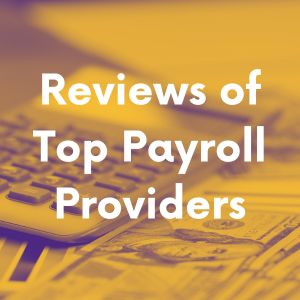
Enhanced Security
Trusted payroll outsourcing firms utilize the latest technologies to ensure data security. This includes encryption methods, secure data transmission, and two-factor authentication. Businesses can rest easy knowing their sensitive payroll data is in safe hands.
Regulatory Compliance
Keeping up with the ever-evolving world of tax regulations and employment laws can be daunting. Outsourcing providers are experts in this realm, ensuring businesses remain compliant and avoid potential penalties.
Time-saving
The time that businesses used to allocate to payroll processing can now be directed towards other profitable activities. With a trustworthy partner handling payroll complexities, companies can focus on growth and expansion strategies.
Scalability
As a business grows, its payroll needs change. Outsourcing allows for easy scalability, whether a company is expanding its workforce or entering new markets with different regulations.
Fewer Errors
With specialized focus and tools at their disposal, payroll providers can significantly reduce the chances of errors. This not only ensures employees get paid correctly but also protects businesses from potential fines or lawsuits.
Outsourcing payroll is not just a trend but a strategic move embraced by businesses globally. From cost savings to compliance, the benefits are manifold. While the decision to outsource is individual to each business, understanding these advantages can offer clarity and direction in the decision-making process.
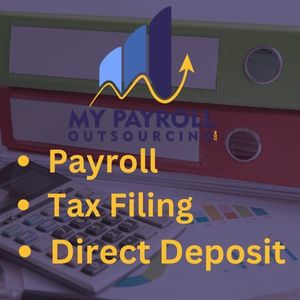
What Do Payroll Services Do?
Understanding the intricate offerings of payroll services is pivotal for businesses considering the outsourcing route. Payroll services encompass a wide range of tasks that are integral for smooth employee payment operations and adhering to regulations.
Processing Employee Pay
The primary role of a payroll service is to ensure that all employees are paid accurately and on time. This includes calculating wages based on hours worked, deducting necessary taxes, and disbursing salaries to respective bank accounts.
Handling Tax Obligations
A significant responsibility of payroll services is managing all tax-related aspects. They compute federal, state, and local tax withholdings, file quarterly and year-end taxes, and ensure timely tax payments to avoid penalties.
Managing Benefits and Deductions
Payroll services also handle other deductions from an employee’s salary, such as health insurance, retirement contributions, and any other company-specific deductions.
Generating Reports
Many payroll services provide businesses with detailed reports. These can include wage and labor reports, tax payments, and employment verification, aiding in financial analysis and business planning.
Record Keeping
Maintaining thorough and accurate records is crucial for any business, both for internal reference and to adhere to legal requirements. Payroll services ensure that all payroll-related documents and data are systematically stored.
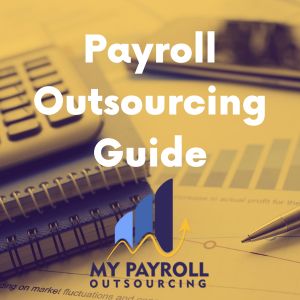
What to Expect with Outsourced Payroll
Entrusting your payroll operations to an external service can be a transformative decision. But what exactly can businesses expect once they make the leap?
Seamless Transition
Most reputable payroll services ensure a smooth transition from in-house processes. They will work closely with businesses to transfer all essential data, minimizing disruptions.
Dedicated Support
Outsourcing doesn’t mean being left in the dark. Businesses can expect dedicated support, often in the form of a manager or a team, to address queries, provide updates, and offer guidance.
Regular Updates
The world of finance and regulations is dynamic. Outsourced payroll services typically provide clients with regular updates on any changes in tax codes, employment laws, or best practices.
Advanced Software Integration
Many payroll services come equipped with state-of-the-art software, offering businesses access to cloud-based systems, mobile apps, and other tech solutions that enhance efficiency and accessibility.
Compliance Assurance
One of the significant benefits of outsourcing payroll is the peace of mind businesses get regarding compliance. Service providers routinely audit their processes, ensuring adherence to all local and federal regulations.
Cost Transparency
Most outsourced payroll services operate on transparent pricing models. Businesses can expect clear invoices with breakdowns of services provided, ensuring there are no hidden costs.
Outsourcing payroll offers a comprehensive suite of services designed to alleviate the complexities of employee payments and tax obligations. By understanding the depth and breadth of offerings, businesses can make informed decisions, capitalizing on the expertise and efficiencies that professional payroll services bring to the table.

How Much Does Payroll Outsourcing Cost?
Payroll outsourcing costs can vary significantly based on the size of the business, the complexity of the payroll, the specific services selected, and the service provider. However, to provide some perspective on average costs and potential savings, let’s delve into the details:
Average Cost to Outsource Payroll Services:
- Small Businesses (1-50 employees): Typically, small businesses can expect to pay anywhere from $50 to $200 per month, plus an additional per-employee fee which usually ranges from $2 to $5.
- Medium Businesses (50-100 employees): For medium-sized businesses, the monthly fees might range from $150 to $500, with per-employee fees staying in the ballpark of $4 to $8.
- Large Enterprises (100+ employees): Large businesses, due to the volume and potential complexities, could see monthly charges from $500 to $3,000 or more, with per-employee charges between $5 to $15, especially if they require customized payroll solutions.
In-House vs. Outsourced Payroll Costs:
When weighing the costs of in-house versus outsourced payroll, consider the following factors:
- Salaries and Benefits: Maintaining an in-house payroll department means salaries, benefits, and potential bonuses for payroll staff. For instance, the average salary for a payroll specialist can be upwards of $45,000 annually.
- Software and Tech Infrastructure: Investing in the latest payroll software and related tech infrastructure can run into thousands of dollars initially, with additional annual maintenance and upgrade costs.
- Training and Development: Keeping in-house staff updated with the latest payroll regulations, software functionalities, and best practices requires continuous training, another cost to factor in.
- Potential Penalties: Inaccuracies in in-house payroll can lead to costly penalties for tax discrepancies. With an outsourced solution, many providers offer guarantees against such errors.
Cost Savings: By outsourcing, businesses can often save significantly. When you account for employee salaries, software costs, training, and potential penalties, many businesses find that outsourcing can be cost-effective. For many small to medium enterprises, the savings can be in the range of 20% to 40% when compared to managing payroll in-house.
While the immediate numbers might suggest higher costs with outsourcing, it’s crucial to factor in the hidden and long-term expenses associated with in-house payroll management. Additionally, the time, effort, and stress saved by entrusting experts can’t be monetized but add immense value to a business’s smooth functioning.
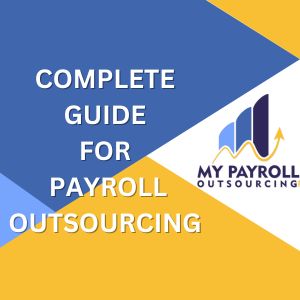
The Potential Risks of Not Outsourcing High-Volume Payroll Needs
Handling payroll for a large workforce in-house is no small feat. As the number of employees grows, the complexities multiply, and so do the challenges. Not outsourcing high volume payroll needs can expose a business to several risks. Here’s a closer look:
1. Increased Error Margin
With a high number of employees, even a small percentage of payroll errors can mean a significant number of inaccuracies. These can lead to:
- Overpayments or underpayments, affecting the business’s financials and employee morale.
- Incorrect tax calculations leading to potential legal implications.
2. Strain on Resources
Processing payroll for a large volume of employees requires dedicated resources – both human and technological. This can lead to:
- Diverting staff from their core job functions.
- Overworked employees potentially making more mistakes.
- Needing to constantly update and maintain software and hardware systems.
3. Regulatory Non-compliance
With constantly changing tax laws, employment regulations, and reporting requirements, staying compliant becomes a significant challenge. Non-compliance can result in:
- Heavy fines and penalties.
- Legal disputes or audits.
- Damage to the company’s reputation.
4. Data Security Concerns
Handling payroll in-house for a large volume of employees means managing sensitive personal and financial information. Without the right technological safeguards, there’s a risk of:
- Data breaches leading to identity theft.
- Non-compliance with data protection regulations.
- Loss of trust among employees and stakeholders.
5. Lack of Flexibility and Scalability
As businesses grow or face seasonal fluctuations, their payroll needs might change. An in-house system might struggle to adapt to sudden surges, causing:
- Delays in processing payroll.
- Potential system crashes or overloads.
- Inefficiencies as the system might not be designed for the volume of data.
6. Opportunity Costs
The time and resources spent on managing high volume payroll could be directed towards core business activities. By not outsourcing, businesses might:
- Miss out on opportunities to innovate and grow.
- Fail to allocate resources to more strategic tasks.
- See a dip in overall productivity and efficiency.
While the idea of maintaining control over payroll processes might seem appealing to some businesses, the potential risks of managing high volume payroll in-house cannot be overlooked. Outsourcing not only mitigates these risks but also provides a cost-effective, efficient, and secure solution that allows businesses to focus on their core objectives.
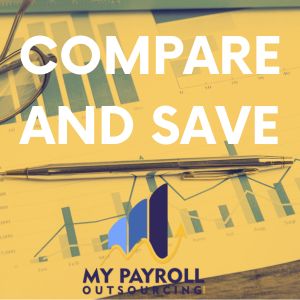
Benefits of Seamless Integration with HR Systems
When considering payroll, it’s not just about the numbers and payments. The whole process intertwines deeply with human resources, from hiring to retirement. Efficiently managing payroll, especially for businesses with high volume needs, can be achieved more effectively when there’s a seamless integration with HR systems. Here’s how this integration amplifies the effectiveness of your payroll processes:
Enhanced Data Accuracy
One of the significant benefits of integration is the reduction in human errors. With data like personal details, bank account numbers, tax codes, and more directly flowing from the HR system to payroll, it reduces the chances of discrepancies. No more manual data entry means fewer mistakes.
Time-Saving and Efficiency
Integration can dramatically reduce the time HR and finance teams spend on administrative tasks. Instead of duplicate entries across multiple systems, a single update in the HR system can reflect across all necessary platforms. This streamlined process allows staff to focus on more strategic initiatives.
Real-Time Reporting
Integrated systems allow for real-time reporting. Whether it’s about an employee’s leave balance, overtime, bonuses, or other compensation benefits, having immediate access to this data assists in making timely and informed decisions.
Employee Self-Service
Many integrated payroll and HR systems come with self-service portals. Employees can log in to update personal details, check payslips, request leaves, and more. This empowerment not only reduces administrative tasks for HR but also promotes transparency in the organization.
Comprehensive View of Employee Lifecycle
From the moment an employee is onboarded to their exit, an integrated system provides a holistic view of their lifecycle in the company. Such insights can be invaluable for performance reviews, succession planning, and other HR strategies.
Synchronized Updates
Laws, regulations, company policies, or individual employee details—anything can change. With integrated systems, any change is updated across all platforms, ensuring that payroll processes always work with the latest, most accurate data.
An integrated HR and payroll system is not just a luxury but a necessity for large enterprises, especially those with high volume payroll needs. This integration doesn’t just reduce errors and save time; it revolutionizes the way companies view their human capital, making the processes more strategic and value-driven. As the business landscape evolves, ensuring that your systems are interconnected will not only streamline operations but position your organization for future growth and adaptability.

Choosing the Right Outsourcing Partner
Selecting an appropriate payroll outsourcing provider is paramount. Your choice can mean the difference between a streamlined, efficient payroll process and a cumbersome, error-prone ordeal. Here’s a guide to making a well-informed decision:
Essential Qualities to Consider
- Expertise in the Field: The ideal partner should have vast experience and demonstrate a profound understanding of the nuances in payroll management.
- Technological Prowess: In this digital age, it’s essential that the service provider uses advanced tools and software to ensure efficiency, accuracy, and security in payroll processing.
- Transparent Communication: Regular updates, clear communication, and an open channel for queries and concerns are vital. You want a partner that’s approachable and responsive.
- Positive Client Feedback: Researching reviews and testimonials can provide insights into the provider’s reliability and quality of service.
- Global Capabilities: If your organization operates in multiple countries or plans to expand, it’s beneficial to have a payroll partner that understands international regulations and complexities.
Questions to Ask Potential Partners
- What security measures do you have in place to protect our data?
- How do you handle changes in tax laws and other regulations?
- Can you provide references from other businesses similar in size or industry to ours?
- What’s your protocol for handling errors or discrepancies?
- How do you ensure compliance with local, state, and federal laws?
- Do you offer integrated services, like HR and benefits administration, along with payroll?
Making the Final Decision
While cost will inevitably play a role in your decision, it’s vital not to make it the sole determining factor. The cheapest option might end up costing more in the long run if it leads to errors, compliance issues, or inefficiencies. Instead, consider the overall value the provider brings in terms of expertise, technology, customer service, and additional offerings.
As businesses recognize the complexities and potential pitfalls of managing payroll in-house, the appeal of outsourcing becomes clear. However, ensuring that you select the right partner to trust with this crucial task will be instrumental in reaping the full range of benefits that outsourcing can offer.

